Step Lively
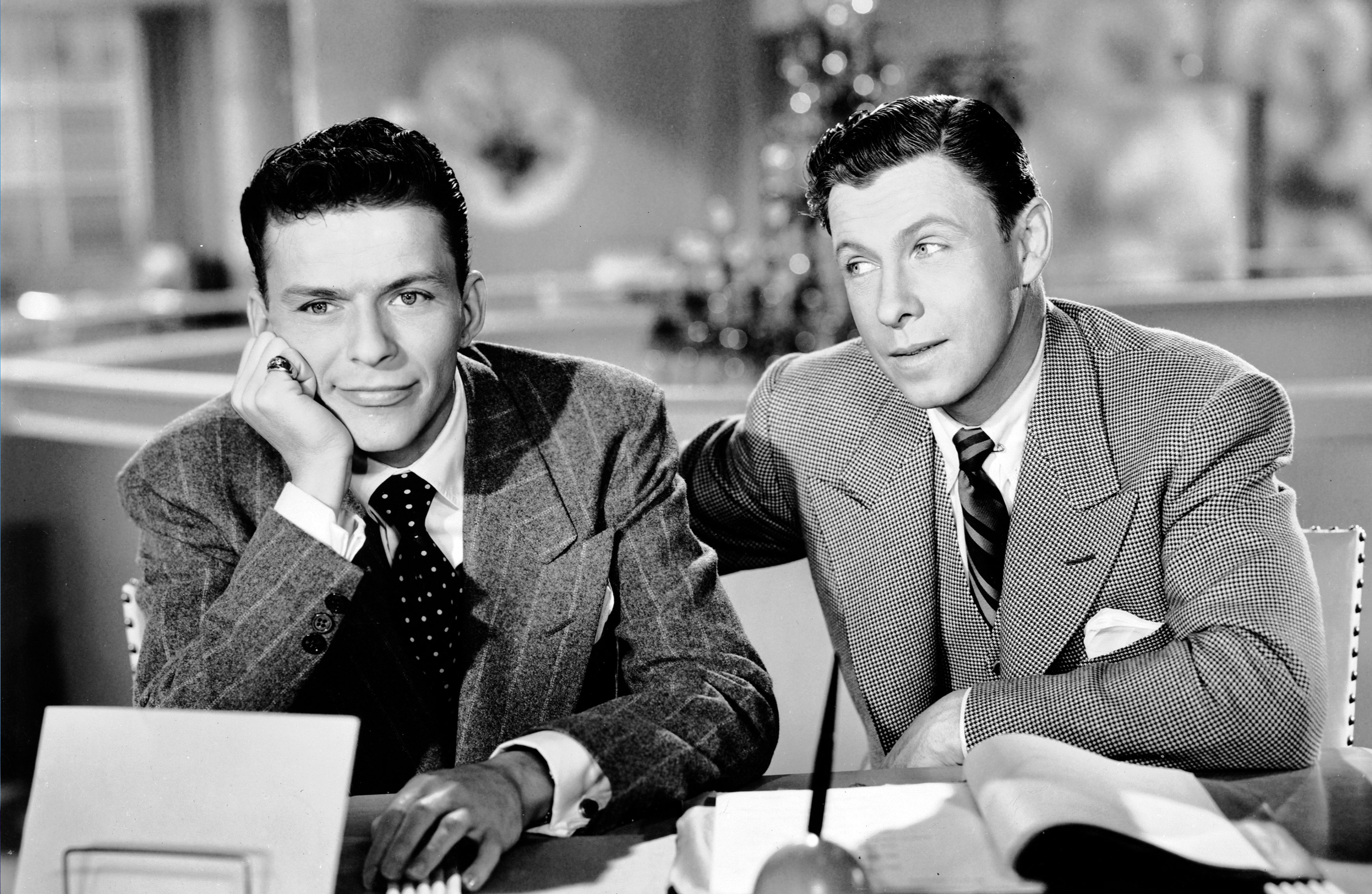
Brief Synopsis
Cast & Crew
Tim Whelan
Frank Sinatra
George Murphy
Adolph Menjou
Gloria De Haven
Walter Slezak
Film Details
Technical Specs

Synopsis
Penniless theatrical impresario Gordon Miller has housed his entire cast of twenty-two in a New York hotel managed by Gribble, his brother-in-law. When Gribble informs him that Wagner, the supervising director of the hotel, has discovered the troupe's unpaid bill, Gordon assures him that he has found a financial backer for the show. Gordon's financial woes multiply when playwright Glenn Russell arrives from Illinois and threatens to call his uncle, a judge, unless the impresario refunds the $1,500 he had accepted to stage Glenn's play. To placate Glenn, Gordon checks him into the hotel and lies that his play is in rehearsal, inviting him to attend a performance the following morning. That evening, Gordon takes Glenn to a nightclub to see his star, Christine Marlowe, perform. When Chris invites Glenn to join her in a song, the women in the audience go wild, and Gordon, recognizing Glenn's potential as a singer, asks Chris to convince him to join the show. The next morning, Simon Jenkins, Gordon's backer, watches a dreadful rendition of Glenn's play and is about to withdraw his support when his companion, Miss Abbott, hears Glenn sing and insists on investing in the show. Jenkins then offers Gordon $50,000 to produce his musical revue, explaining that he is a representative of Miss Abbott's wealthy patron, who wishes to purchase the show as a starring vehicle for her. Before the deal is finalized, however, an impatient Wagner demands that Gordon pay his hotel bill. To stall, Gordon lies that Glenn has become ill and is unable to move, and Chris convinces Glenn to go along with the scheme. Wagner brings a doctor to examine the "patient," and when Jenkins appears at the hotel room door, Gordon locks the doctor on the balcony. Jenkins presents Gordon with a check signed by a Los Angeles millionaire and is about to endorse it when Wagner enters the suite and threatens to call the police unless Gordon vacates the premises immediately. Wagner's threat panics Jenkins, who attempts to run away. When the doctor, who has overheard the entire proceedings, reveals the name of the wealthy benefactor, Wagner, Gribble and Gordon pursue Jenkins and coerce him into endorsing the check, which Wagner then confiscates. After Wagner leaves the hotel room, Chris arrives with news that Jenkins plans to cancel the check. Because the check has been drawn on a California bank, Gordon reasons that he has five days before it will bounce, and decides to stage the show in three days. Knowing that Glenn's singing will ensure the show's success, Gordon asks Chris to romance him into performing in the production. When Glenn discovers her duplicity, however, he walks out of the show and returns home to Illinois, causing Chris to realize that she has fallen in love with him. To lure Glenn back to New York, Gordon cables him that Chris is in love with him. On opening night, Wagner and Gribble discover that the check has bounced and Wagner threatens to jail Gordon. At that moment, Glenn arrives, and to distract Wagner, feigns a suicide attempt. Gordon then sends his assistants, Harry and Binion, to start the show while he stalls Wagner and Gribble. As Wagner, Gribble and Gordon stand their "death watch," the show begins, and when the time for Glenn's performance arrives, Gordon stuffs Wagner in the closet and rushes Glenn on stage. Escaping just in time to witness the audience's acclaim for Glenn's performance, Wagner happily acknowledges that Gordon has a hit on his hands.

Director
Tim Whelan
Cast
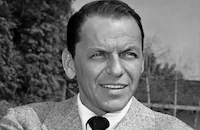
Frank Sinatra

George Murphy
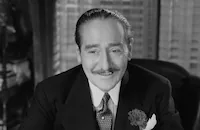
Adolph Menjou

Gloria De Haven

Walter Slezak
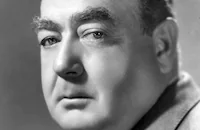
Eugene Pallette

Wally Brown
Alan Carney
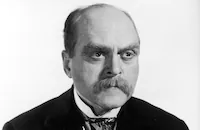
Grant Mitchell

Anne Jeffreys
Frances King
Harry Noble
Robert Andersen

Glenn Vernon
Jimmy Jordan
Margaret Westberg
Carol Leonard
Carol Deere
Maxine Carole
Wendy Moncure
Laura Lane
Nancy Hale
Iris Bocignon
Eloise Farmer
Eleanore Leaman
Jewell Partin
Linda Scott
Joan Carey
George Chandler
Sonny Lamont
Fred Rapport
Rosemary La Planche
Shirley O'hara

Elaine Riley
Tom Burton
Harry Clay
Tom Bryson
John Shaw
Steve Winston
Chris Drake
Patti Brill

Dorothy Maloney
Barbara Lynn
Carl Kent
Margie Stewart
Alan Ward
Frank Mayo
Wheaton Chambers
Larry Wheat
Bert Moorhouse

Mary Halsey
Sherry Hall
Lee Murray
Jack Gargan
Sammy Blum
Monte Simon

Freddie Mercer
Donald Kerr
Hubert Bland
Warren Lane
Ronn Marvin
Bob Mascagno
Nickolai
Buster Brodie

Joan Barclay
Elaine Andersen
Lee Trent
Richard Davies
Crew
C. Bakaleinikoff
Clem Beauchamp
Mel Berns
Sammy Cahn
Claude Carpenter
Carroll Clark
Albert S. D'agostino
Ken Darby
Warren Duff
Robert Fellows
Robert De Grasse
Ernst Matray
Maria Matray
Gene Milford
Peter Milne
Earl Mounce
Gene Rose
Darrell Silvera
Jean L. Speak
Edward Stevenson
James G. Stewart
Axel Stordahl
Jule Styne
Vernon L. Walker

Videos
Movie Clip



Trailer
Film Details
Technical Specs

Award Nominations
Best Art Direction
Articles
Step Lively
As Sinatra's cool, effortless ability of tossing off one-liners had yet to be mined, Frank's role in Step Lively was essentially straight man stuff - the budding playwright whose potential hot property the shyster showmen crave. Suffice to say, the crooner had considerable comic support: George Murphy, Wally Brown and Alan Carney as the shifty trio (the latter two, later promoted as RKO's answer to Abbott and Costello - teamed in a series of second string comedies throughout the mid-Forties), Walter Slezak as the flustered hotel manager and Eugene Pallette as a bullfrog-voiced spokesman for a would-be backer.
Nicely received by both critics and audiences, Step Lively's standout attraction are the lovely Styne/Cahn tunes; for 1944 movie goers, the picture gave the top-billed Sinatra his first love interest in the personable person of Gloria DeHaven, and, primarily for his female fans, his first screen kiss - the swooning response drowned out by the coast-to-coast ringing of theater cash registers.
Step Lively was also the film Sinatra was working on when his wife Nancy gave birth to their son, Franklin Wayne Sinatra (Frank, Jr.), named after President Roosevelt. In fact, Sinatra participated in a war bond benefit with Bob Hope and other celebrities to celebrate President Roosevelt's birthday immediately after Step Lively was completed.
Director: Tim Whelan
Producer: Robert Fellows
Screenplay: Warren Duff, Peter Milne, based on the play by Allen Boretz and John Murray
Cinematography: Robert De Grasse
Editor: Gene Milford
Music: Jule Styne
Cast: Frank Sinatra (Glen Russell), George Murphy (Gordon Miller), Adolphe Menjou (Wagner), Gloria DeHaven (Christine Marlowe), Walter Slezak (Joe Gribble).
BW-89m.
by Mel Neuhaus

Step Lively
Quotes
Trivia
Notes
The working title of this film was Manhattan Serenade. According to a news item in New York Times, RKO bought the rights to the working title from M-G-M. Frank Sinatra received his first top billing in the opening credits of this picture. The film was the second Sinatra made under a seven-year contract with RKO, but it was his last film for the studio before going under contract to M-G-M. The Variety review commented that Room Service, the play on which this film was loosely based, was reworked to feature Sinatra. A news item in Hollywood Reporter adds that choreographers Ernst and Maria Matray were awarded term contracts at RKO after completing this film. Gloria De Haven was borrowed from M-G-M to appear in this picture. According to a Hollywood Reporter news item, the manager of the Palace Theater in New York claimed that Sinatra fans ripped the railing from the theater's balcony when their idol appeared on the screen. This picture received an Academy Award nomination for Best Art Direction. The 1938 RKO film Room Service, starring the Marx Brothers and directed by William A. Seiter, was also based on the John Murray and Allen Boretz play (see AFI Catalog of Feature Films, 1931-40; F3.3831).















